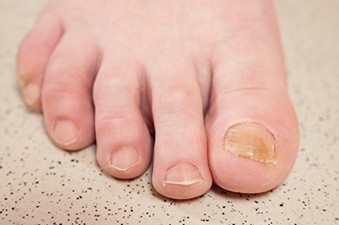 Heel spur removal is a surgical procedure performed to alleviate pain caused by bony growths on the underside of the heel. Indications for this procedure include chronic heel pain that does not improve with conservative treatments, such as orthotics or anti-inflammatory measures. Heel spurs often develop due to repetitive stress, plantar fasciitis, or abnormal foot mechanics. Symptoms include sharp heel pain, especially with the first steps in the morning, swelling, and tenderness. A podiatrist can help by diagnosing the condition, exploring non-surgical options, or determining if surgery is necessary for lasting relief. If heel pain is affecting your mobility, it is suggested that you contact a podiatrist for an expert evaluation and care.
Heel spur removal is a surgical procedure performed to alleviate pain caused by bony growths on the underside of the heel. Indications for this procedure include chronic heel pain that does not improve with conservative treatments, such as orthotics or anti-inflammatory measures. Heel spurs often develop due to repetitive stress, plantar fasciitis, or abnormal foot mechanics. Symptoms include sharp heel pain, especially with the first steps in the morning, swelling, and tenderness. A podiatrist can help by diagnosing the condition, exploring non-surgical options, or determining if surgery is necessary for lasting relief. If heel pain is affecting your mobility, it is suggested that you contact a podiatrist for an expert evaluation and care.
Heel spurs can be incredibly painful and sometimes may make you unable to participate in physical activities. To get medical care for your heel spurs, contact one of our clinicians from The Footcare Centre. Our podiatrists will do everything possible to treat your condition.
Heels Spurs
Heel spurs are formed by calcium deposits on the back of the foot where the heel is. This can also be caused by small fragments of bone breaking off one section of the foot, attaching onto the back of the foot. Heel spurs can also be bone growth on the back of the foot and may grow in the direction of the arch of the foot.
Older individuals usually suffer from heel spurs and pain sometimes intensifies with age. One of the main conditions spurs are related to is plantar fasciitis.
Pain
The pain associated with spurs is often caused by weight placed on the feet. When someone is walking, their entire weight is concentrated on the feet. Bone spurs then have the tendency to affect other bones and tissues around the foot. As the pain continues, the feet will become tender and sensitive over time.
Treatments
There are many ways to treat heel spurs. If one is suffering from heel spurs in conjunction with pain, there are several methods for healing. Medication, surgery, and herbal care are some options.
If you have any questions, please feel free to contact our offices located in Weybridge, UK. We offer the newest diagnostic and treatment technologies for all your foot and ankle needs.


 Fungal infections of the toenails
Fungal infections of the toenails
